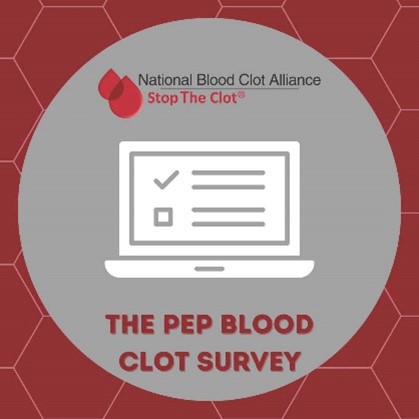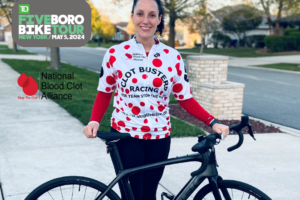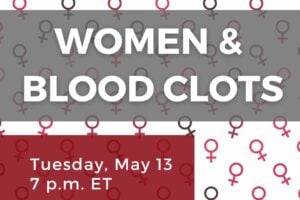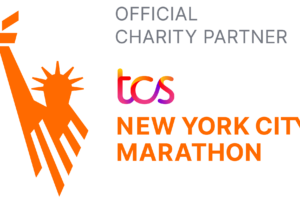Thank you to the 1,050 blood clot patients who participated in our online survey in May and June of this year about the blood clot patient experience. Dubbed the “Patients Educating Providers” survey, it was the first large-scale, international survey capturing patient experiences and gaps in care before, during and after a blood clot diagnosis.
NBCA partnered with Dr. Rushad Patell, hematologist at Beth Israel Deaconess Medical Center and co-chair of NBCA’s Council of Emerging Researchers in Thrombosis (CERT), to led the survey.
He will share the findings with a clinical audience of more than 25,000 at the American Society of Hematology Annual Meeting and Expo poster session on Monday, December 11, 2023, from 6-8 p.m.
Highlights of the survey:
- 35 percent reported that they didn’t receive the correct diagnosis the first time they sought treatment
- 50 percent had at least three health care visits before they were correctly diagnosed
- 93 percent received information verbally about their diagnosis
- 65 percent of respondents reported that the discussion about blood clots upon diagnosis lasted less than 10 minutes.
- 55 percent felt their diagnosis was explained to their satisfaction.
- 53 percent reported having access to their health care providers for follow-up questions regarding their diagnosis
- 16 percent of respondents received printed or electronic information on blood clots at the time of diagnosis.
- 97 percent were treated with anticoagulation, but only 48 percent recall being provided with specific information about the medication, including risks and benefits.
Of the 702 patients who were admitted to the hospital for VTE, 32 percent reported that they returned to seek additional treatment as their symptoms did not improve. Most admitted patients, or 89 percent, reported receiving some information about VTE at discharge, but the information didn’t match the topics the patients wanted.
For example, patients most frequently wanted information about support groups (65 percent), mental health (65 percent), recurrence risk (55 percent) and prevention strategies (49 percent), but few received this information.
Thank you again to everyone who took part in the survey. You are helping to amplify the patient voice and improve future patient care!
Read more: https://ash.confex.com/ash/2023/webprogram/Paper181172.html






